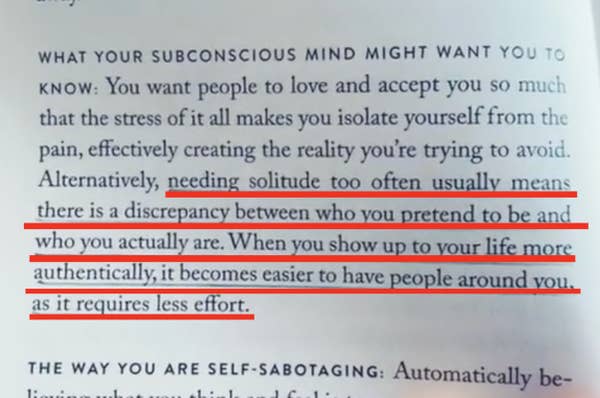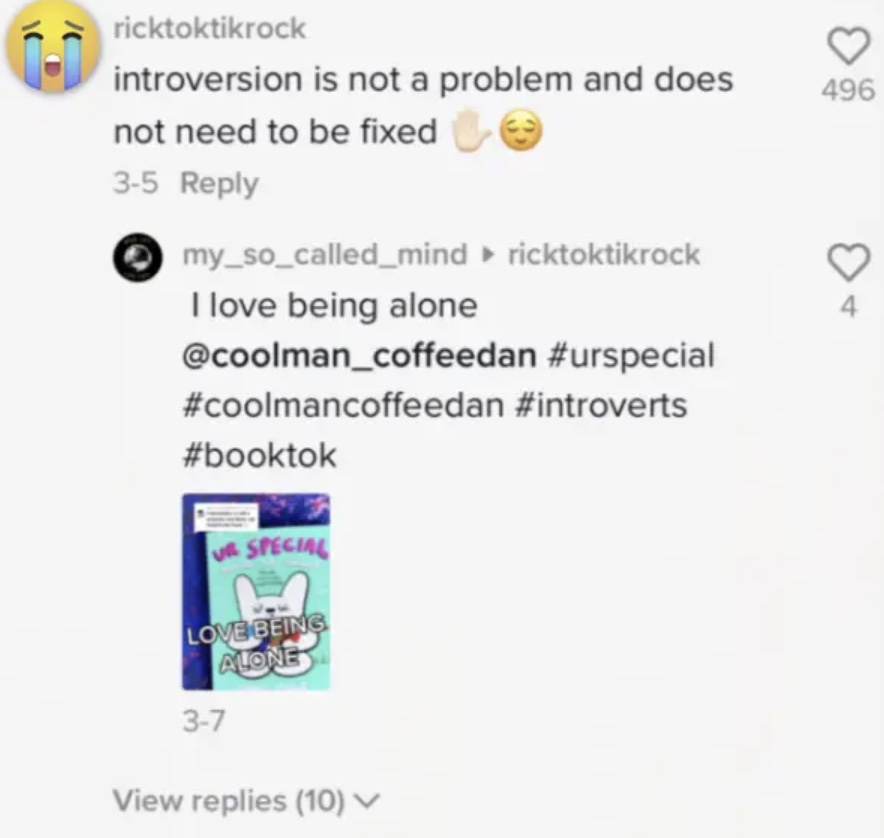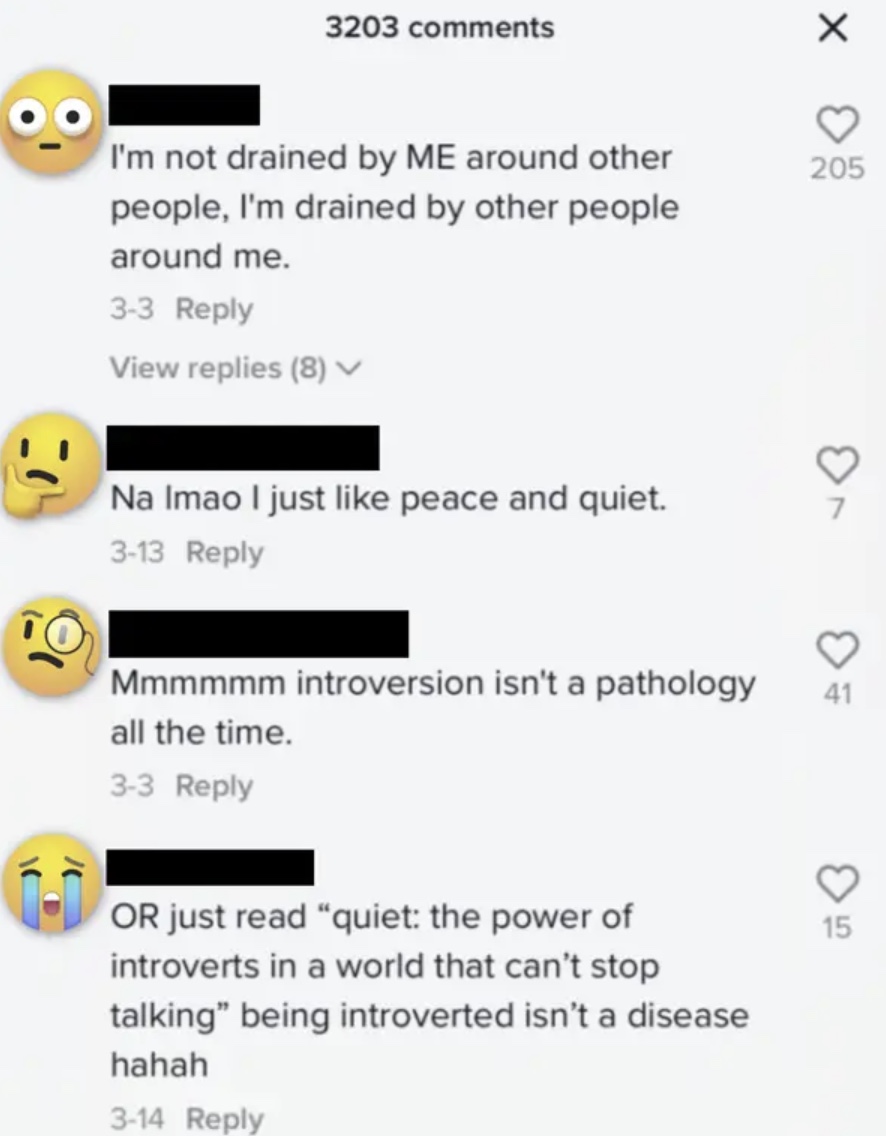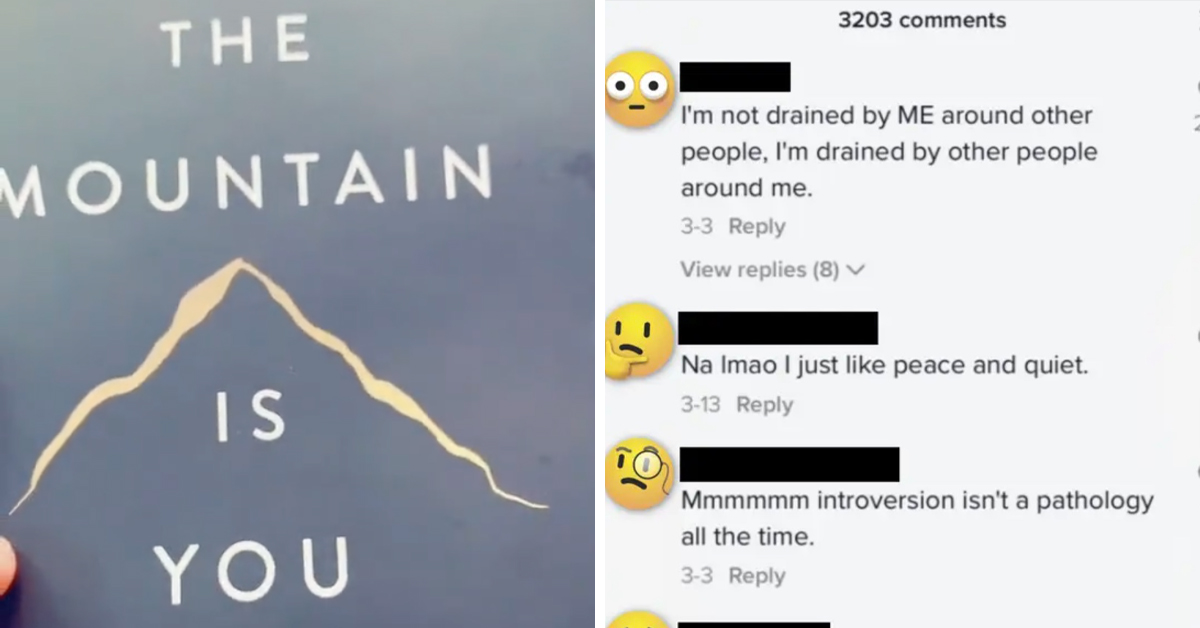A Viral Quote About Isolation Is Resonating With Introverts On TikTok
We’ve heard a lot over the last few years about ‘introverts’ and ‘extroverts’: “introverts love WFH!” “extroverts are struggling with lockdown” and so on.
TikToker @my_so_called_mind posted a quote from Brianna Wiest’s book The Mountain Is You: Transforming Self-Sabotage Into Self-Mastery.

The quote reads “Alternatively, needing solitude too often usually means there is a discrepancy between who you pretend to be and who you actually are. When you show up to your life more authentically, it becomes easier to have people around you, as it requires less effort.”
The post has since been removed, but before it was, it had gone viral. Introverts quickly took umbrage to the idea that they need to be “fixed”.

Brianna Wiest also had some clarifications. She reached out to BuzzFeed and said, “The passage in question is not about introversion. It’s about self-isolating due to not feeling comfortable with yourself, which, technically, both extroverts and introverts can do…Introversion was not mentioned in the book, it was a word used as a hook for this video,” she said.
Other viewers clarified that they are not “drained”.

BuzzFeed reached out to Will Prospering, the creator of the @my_so_called_mind account. He is a writer and video producer who hails from Vancouver with a degree in counseling.
“I started the account six months ago, after seeing how much my friends and loved ones were struggling through the pandemic,” Will said to BuzzFeed. “I’ve always been a big believer in self-healing books, and I knew firsthand how powerful they could be in helping us overcome issues with anxiety, panic attacks, and depression (all of which I have struggled with at various points in my life), so I figured if they could help me and the people in my life live a calmer, more present life, there would likely be others out there who might benefit from them as well.”
Regarding introversion specifically, Will noted, “As an introvert myself, the idea that overdoing my identification with the label could easily lead to some overtly negative places and potentially be largely an unidentified trauma-response masquerading as a personality trait — that really resonated with me and lined up with much of the introspection I had been doing at that time.”
He also explained the quote in more detail. “Brianna Wiest does a really great job of outlining the philosophical dangers of living an inauthentic life,” he said. And when it comes to his own understanding of the quote, he explained, “All I can speak to are my own experiences, but within those I have absolutely no doubt that — during my darkest days — many aspects that I labeled as introversion were at the very least equally related to social anxiety, self-consciousness, and a general feeling of unhappiness within myself.”
When asked about the negative feedback from other introverts, Will said, “At first this was pretty shocking to me, as I’d never really had a negative response to anything I’d posted — definitely not at this level — but it started to make more sense once I realized that people were interpreting the quote as being ‘anti-introvert.’ However, the vast majority of negative comments seemed to miss the two key words in the passage, which were ‘too often.’ I don’t think anyone was saying there’s anything wrong with being more heavily introverted than extroverted. As an introvert myself I certainly wasn’t — only that when taken too far the lines between ‘introverted’ and ‘exhausted from inauthenticity’ could quickly become blurred.”
He concluded, “I think the more important lesson here (at least for me) than whether we should be more or less introverted, is that without deeply honest self-reflection we will always be at risk of misinterpreting our trauma responses as being ingrained parts of who we are, which obviously could have highly negative ramifications.”
Image h/t: BuzzFeed

